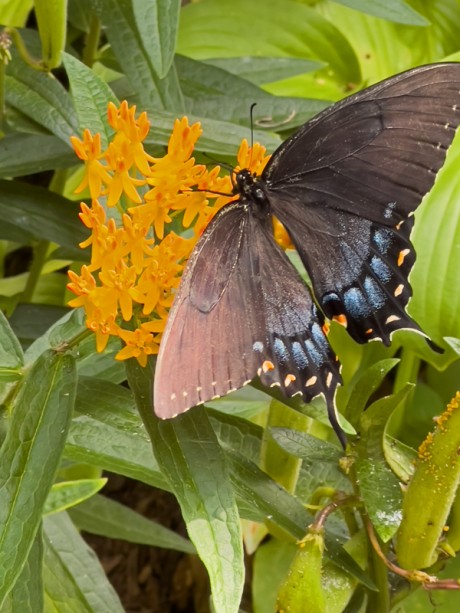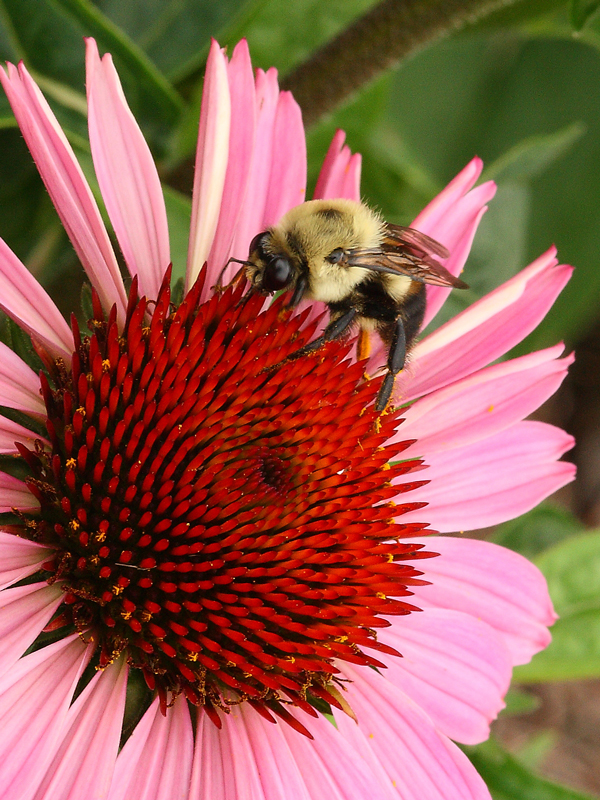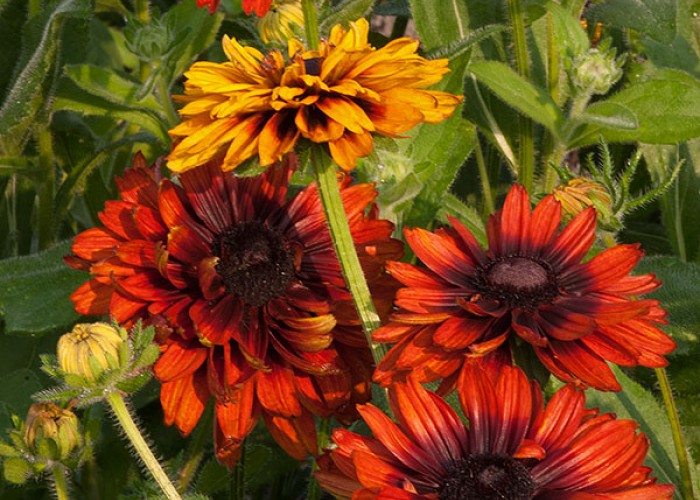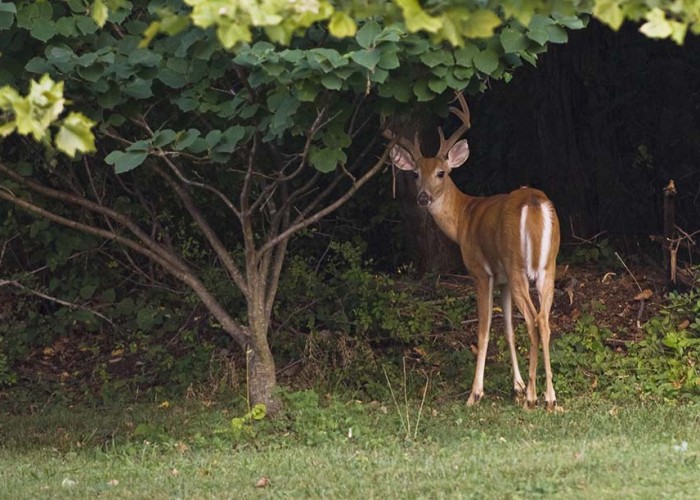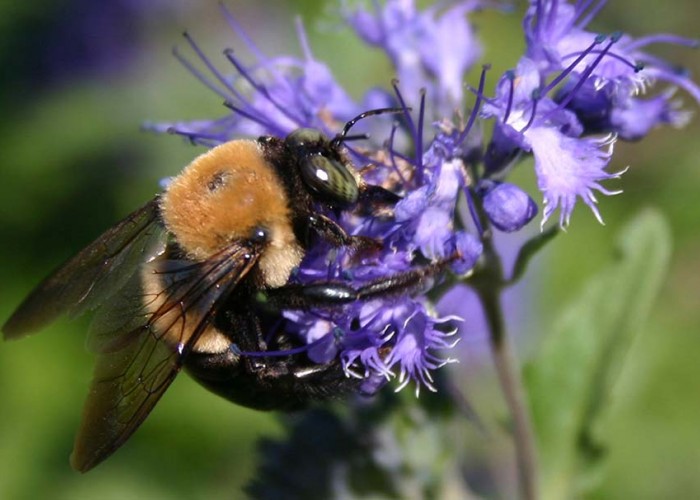A Win for the Good Guys
Plus Garden To-Do’s for March
By L.A. JacksonOptimism is a gardener’s guiding star when springtime planting season arrives — yes, the garden’s gonna look great this year. However, such positive vibes are often wrecked by bad bugs just waiting to munch on leaves and flowers.
Insecticides are the quick solution to six-legged varmint problems, but are they necessarily the best solution? Better gardening through chemistry can have a downside, especially when it comes to causing collateral damage to pollinating insects such as butterflies and bees, as well as helpful bug predators like lacewings, ladybugs, fireflies and parasitic wasps.
For example, many broad-spectrum insecticides are as advertised: concoctions that can solve almost any bug problem in the garden. However, when sprayed indiscriminately, just about all insect activity — both bad and good — ceases.
Systemic insecticides are another way to deal with damaging bugs, but by essentially making an entire plant poisonous to insects, many are quite capable of harming leaf-munching butterfly caterpillars and pollen-harvesting bees as well.
Don’t get me wrong, I have used broad-spectrum and systemic insecticides when faced with creepy crawly problems of biblical proportions, but it has been a while since I pulled the pins on such bug bombs because, over the years, I have found that there are ways to lessen the need for such options.
One of the easiest ways to reduce dependence on kill-all insecticides is to pay attention to your garden. Every day, or at least every other day, take a break and wander into your private green world. Enjoy the sights, but also be on the lookout for trouble.
I have stopped many problems early by finding six-legged nuisances such as thrips, spider mites, mealy bugs, whiteflies, aphids and leaf hoppers just in the beginning stages of mischief, and closed down their parties with well-aimed sprays of a contact bug-bopper such as insecticidal soap, which leaves no harmful residue once it has dried. For bigger beasties such as Japanese beetles and hornworms, I just pluck the offenders off plants and toss them in a bucket of soapy water.
Another way to prevent bad bugs from getting a firm grip in a garden without harming beneficial ones is make plants more insect resistant. How do you do that? Simple: Keep ‘em healthy. Plants in prime condition are less attractive to many hungry insects, and even if they are attacked, most can usually weather damage better than plants that are weak, diseased or stressed.
Garden To-Do's for March
Your garden can be even more appealing to beneficial pollinating insects if you make them feel at home. In other words, bring plants into your landscape they would usually enjoy in the wild. Many native plants that are insect faves also have loads of botanical bling to brighten any cultivated garden. Need examples? New England aster, mountain mint, Indian pink, butterfly weed, blue lobelia, milkweed, liatris, bee balm, yarrow, baptisia, oakleaf hydrangea, goldenrod, turtlehead, ironweed, cardinal flower, black-eyed Susan, climbing aster, purple coneflower and Joe Pye weed are at the top of my long list of indigenous insect-friendly plants that excel in flower power, too. (Learn about more here.)
- Row, row, rowing your veggie garden again this year? For more efficient use of growing space, consider converting from rows to rectangular beds and just use the suggested recommendation for space between plants as your guide. Also, to make them easier to reach into, don’t construct the beds more than four feet wide.
- Planning to put up new birdhouses this spring? Remember to buy or build wooden birdhouses. Compared to metal or plastic, wood is a better insulator, which helps prevent the feathered occupants from overheating during the sizzle of the summer.
-
More March gardening
-
Share this story:

